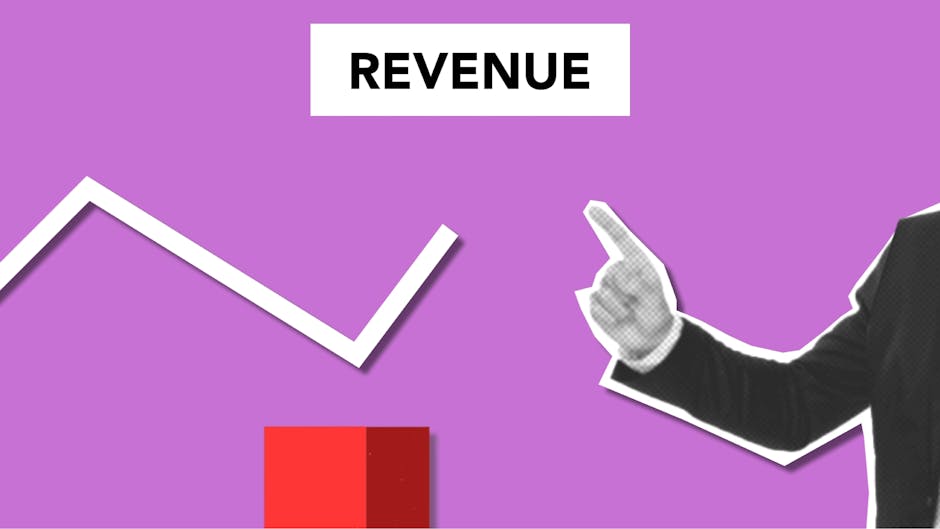Understanding the importance of financial planning for small businesses is a game-changer. It’s such a crucial aspect that it can mean the difference between success and failure in the long run. Yet, it’s also an area that’s overlooked by many, majorly by small business owners either because of lack of awareness or the presumption that they’re too small to need a financial plan. This, however, is far from true.
Financial planning is to a business, what a compass is to a sailor – it points in the right direction, provides a roadmap, and helps navigate through the turbulent sea of business operations. It’s the backbone that provides structural support, helping businesses, regardless of their size, to achieve their long-term financial goals. However, while it might seem like an overwhelming task, especially if you’re a small business owner wearing multiple hats, understanding its importance and execution can turn it into a manageable challenge.
This article is a guide that aims to illuminate the concept, need, and relevance of small business financial planning. We will break down the different components of financial planning and illustrate how each of them fits into the overall business strategy, ensuring long-term success. So let’s peek behind the curtain and delve directly into the heart of small business financial planning.

Understanding Financial Planning for Small Businesses
Financial planning might seem like corporate jargon reserved for business tycoons or Wall Street climbers at a first glance. However, this concept plays a pivotal role, especially for small businesses. Essentially, financial planning refers to the strategic process of managing a business’s financial resources to achieve its objectives and increase its economic value.
The Role of Financial Planning
Why is financial planning relevant for small businesses you may wonder? Consider your business as a sailboat facing a sea of economic uncertainties. In this scenario, financial planning is your compass, charting the path through turbulent waves and formulating strategies to capitalize on favourable conditions. Indeed, without a well-crafted financial plan, you may sail but risk getting lost at sea without a clear destination or navigation plan.
Interconnection with Business Operations
Several aspects of running a small business are interwoven with financial planning. These include:
- Forecasting Cash Flow: Estimate future revenue and expenses to manage resources effectively.
- Budgeting: Allocate resources for various business activities.
- Investment Decisions: Make informed choices about where to put your money for future gains.
- Risk Management: Identify, assess, and make provisions for potential business risks.
Financial planning integrates various financial elements like capital, revenue, expenses, and creditors, aiding businesses in defining a pathway towards sustainability and growth.
Success Through Financial Planning
By developing a robust financial plan, small businesses can not just survive but also thrive, enable growth, and withstand unexpected roadblocks. Thus, if you’re running a small business, understand that having a financial plan is not an option; it’s a necessity. There might be areas in your enterprise where cost-cutting is feasible, but financial planning is not one such aspect. After all, a small step in financial planning can potentially result in a significant stride towards your business’s success.

Establishing Financial Goals
Financial goals serve as the rudder that steers the ship of any small business. Crafting clear, realistic financial goals is critical not just for keeping the business on an even keel, but also for achieving the visibility required to ensure its long-term success. Without them, a business sort of moves around like a car without a GPS, making it quite a hassle to get to your destination. But, when a business knows where it’s headed financially, it’s more likely to reach those milestones.
There are two categories of financial goals that a small business should adhere to: short-term and long-term. The former gets tactical – it revolves around immediate concerns like managing cash flow, maintaining positive net income, or even surviving a volatile quarter. These goals are more immediate, usually spanning a time frame of a year.
Long-term financial goals, on the other hand, shape the bigger picture. They might include objectives like growing the business at a specified rate, expanding into new markets, or achieving a particular value of net assets in the coming years. Essentially, long-term goals introduce a sense of direction to the business, charting a path for prosperity and growth.
However, establishing these goals is not a one-and-done deal. They should be revisited periodically and adjusted as needed. Goals are not static; they are dynamic and must adapt to the ever-changing tides of the business landscape.
Remember, when it comes to setting financial goals for your business, specificity is key. ‘Increasing profits’ is not a goal. ‘Increasing profits by 25% over the next fiscal year’, is. It’s this specificity and the regular revisitation of goals that paves the way for the financial wellbeing of your small business. It not only sets up your business for success but also brings a sense of achievement and fulfillment among all those involved.

Creating a Comprehensive Business Strategy
A comprehensive business strategy is a quintessential part of any successful financial planning process. At its heart, the strategy is a roadmap that outlines the course your business intends to take to reach its financial goals. It constitutes a variety of components, each of which plays a critical role in directing your business towards its destination.
Firstly, your business strategy should incorporate a well-defined mission statement. This establishes your business’s purpose and the direction it should take to accomplish its objectives. Secondly, a clear vision statement is needed to communicate what your business aspires to become in the future, thus steadfastly guiding your financial planning.
An effective business strategy also includes setting strategic objectives that align with your mission and vision. These are specific gauges used to measure your business’s ongoing progress and success. Moreover, a deep-dive into your business’s core competencies is also paramount, allowing to leverage your unique strengths and carve a niche in the market.
Lastly, one of the most essential parts of your strategy must include a thorough SWOT analysis (strengths, weaknesses, opportunities, and threats). This insight into your business environment will help you make informed financial decisions, capitalize on opportunities and be on the alert for potential pitfalls.
Now, linking back to the matter at hand, the connection between your business strategy and financial planning is a seamless one, much like the pieces of a puzzle fitting together perfectly. Your financial planning provides the monetary resources needed to execute your business strategy, while the strategy directs these funds to the right channels to obtain maximum returns. In essence, your business strategy feeds your financial planning process and vice versa.
To sum it up, a carefully constructed business strategy correlated with wise financial planning decisions is your ticket to small business longevity and profitability.

Budgeting and Forecasting
Stepping into the realm of budgeting and forecasting in financial planning, it’s essential to fathom their significant role in mapping out the financial road for small businesses. Simply put, budgeting is the process of creating a plan to spend your business money. This spending plan, or budget, allows you to determine in advance whether you will have enough money to carry out desired business activities.
Forecasting, on the flip side, involves a broader perspective, estimating future financial outcomes for your business. This is predominantly about looking at trends, considering the business market’s highs and lows, and tying it all together to anticipate what comes next for your business financially.
Both budgeting and forecasting, although different, are interrelated and key to maintaining both the short and long-term financial health of your business. By keeping a pulse on your business expenditures through budgeting, you can ensure you do not find yourself short when an unplanned expense arises. At the same time, forecasting also safeguards your business interests. By waiting for the highs to invest and the lows to cut back, forecasting ensures you effectively deploy your funds and are rarely taken by surprise.
Their combined benefits turn out to be massive for a small business’s financial planning, providing a clear vision of the financial future and offering a realistic focus to make well-informed financial decisions and avoid foreseeable financial downturns. Furthermore, consistently validated budgets and forecasts encourage investor confidence and can help secure funding for your business.
Thus, a successful financial planning venture for small businesses cannot, for all good reasons, do without accurate budgeting and forecasting. The key is to approach them not as tasks but as critical tools for shaping your financial journey, utilizing resources methodically, securing funding, and ultimately, moving closer to your business goals.

Financial Risk Analysis
Often undervalued until a crisis hits, financial risk analysis is an essential pillar of small business financial planning. In essence, financial risk analysis is the process of identifying and assessing potential threats that can impact the financial health of your business significantly. Just like a physical health check-up, it assesses the “vital signs” of your business finances, spotting potential issues even before they show any overt symptoms.
These risks could include fluctuations in market conditions, threat from competitors, funding issues, or even unseen pitfalls, like a global pandemic. By conducting a thorough financial risk analysis, small businesses can predict potential losses and prepare accordingly.
Strategies to manage and mitigate financial risk are multifarious and usually bespoke to each business context. However, there are a few universally applicable methods. First, diversification is key. By ensuring revenue comes from multiple sources or services, a downturn in one area need not herald disaster. In short, don’t put all your eggs in one basket.
Second, maintain a robust contingency fund. While instinct may guide business owners to reinvest all profits back into the business, it’s essential to stash away some cash for rainy days.
Finally, yet importantly, employ appropriate insurance covers. It gives not just financial protection against unforeseen circumstances but also provides peace of mind.
A small business needs to be prepared for all eventualities, and a comprehensive risk analysis contributes to that preparedness. Remember, financial stability is not just about maximizing profits but also about minimizing risks, ensuring your business remains resilient in the face of adversities.

Cash Flow Management
Cash flow management is an essential aspect of small business financial planning. It refers to the process of tracking how much money is coming into your business (inflows) and how much is going out (outflows). It’s like your business’s pulse; it needs to be steady, rhythmic, and, ideally, positive. Cash flow management is important in helping you keep your business alive and kicking, and fail to do so can lead to business windup.
In the realm of small business financial planning, proper cash flow management serves two central purposes. First, it provides a clear picture of your business’s financial health, helping you make informed decisions about your operations and growth strategies. Secondly, it ensures your business has enough cash to cover day-to-day operating expenses and unexpected costs, securing your business’s sustainability and long-term viability.
Fortunately, efficient cash flow management is not rocket science; it’s more about regular monitoring and strategic thinking. Here are some strategies to apply:
- Invoice Promptly and Accurately: To avoid delayed receivables, send out invoices as soon as goods or services are delivered. Make sure the invoices are accurate to prevent discrepancies that might hold up payments.
- Monitor Cash Flow: Utilize financial tools that allow you to monitor your cash flow in real-time, giving you an insight into your financial status at every moment.
- Maintain Cash Reserve: Just as a squirrel stores nuts for winter, ensure you stow away a buffer to cater for unexpected costs or opportunities.
- Practice Good Inventory Management: Avoid tying up your cash in unsold inventory. Strive to strike a balance where you have exactly what you need when you need it.
- Negotiate Terms with Suppliers: Ask your suppliers for extended payment terms or discounts for early payments. This strategy can help you redress your cash balance and manage your outflows better.
Remember, cash is not just king in small business financial planning; it’s the entire empire. Effective cash flow management can equip your business with the resilience and resources required to navigate through the most tumultuous financial storms. As a small business owner, you must wear many hats – let one of them be that of a master in cash flow management.

Seeking Professional Help
There comes a time in every small business journey when considering professional financial advice becomes inevitable. This moment typically arises when the determination and dauntless spirit that fueled the business thus far hits the complexities of finance. Deciphering and maneuvering through dense financial terminologies, interpreting financial reports, tax planning, or simply, making strategic money moves for the growth of the business can sometimes be intimidating. It is during such times that the wisdom of seeking professional help can act as a beacon of light, right at the crossroads of confusion and growth.
But why should businesses consider professional advice? The answer lies in the old adage – “It takes money to make money”. A financial advisor helps your business stretch that dollar a little further, making money work harder for you. They bring financial expertise, industry knowledge, and an objective outlook to the table, ensuring small enterprises tread on a path that’s financially sound and risk-averse. Their advice can help small businesses identify their financial blind spots, providing insights to navigate common pitfalls, and tips for long-term financial stability and growth.
Now, choosing the right financial advisor for your small business is no less critical than the decision to seek help. The right advisor aligns with your business’s goals, understands your industry, and more importantly, resonates with your vision for your enterprise. Remember, a good financial advisor encourages you to save for the rainy days, but a great one will empower you to prevent those rainy days.
In essence, bridging the gap between financial challenges and business goals becomes decidedly manageable with professional financial advice. It brings clarity where there’s uncertainty, provides a strategy where there’s confusion, and ultimately, fosters success where there’s ambition.

Review, Adapt, and Update the Financial Plan
Continual monitoring of your financial plan is as essential as setting it up. Circumstances, whether internal to your business or external market conditions, inevitably change over time. As such, it’s vital that your financial plan isn’t static but evolves along with your business.
In the spirit of keeping tabs on your fiscal health, regularly review your financial statements. They offer a real-time snapshot of your venture’s profitability and can help pinpoint areas that need immediate attention. This routine checks and balances approach can prevent minor issues from snowballing into a significant financial distress.
Alongside passive reviews, proactive updates are also crucial. Financial projections made a year ago may not hold water today, given the dynamic nature of market environments and internal business processes. For example, perhaps your raw material costs have risen unexpectedly, affecting your product pricing, or maybe an innovative competitor has disrupted the market. Such instances call for prompt financial plan updates to keep your business strategy viable and profitable.
Moreover, adaptation plays a pivotal role. While change might appear daunting, it often signals new opportunities. For instance, suppose your business witnesses a sudden surge in revenues, adjustments in your financial plan can help you capitalize on this prosperity by realigning investments or developing growth strategies.
In summary, remember that your financial plan isn’t set in stone. Treat it as a living document that reflects the pulsating rhythm of your venture’s journey. Executive reviews, frequent updates, and a willingness to adapt are what will keep your financial plan relevant, realistic, and aligned with your ultimate business goals. It’s not just about surviving; it’s about thriving in a world that never ceases to change.

Conclusion
As we arrive at the end of our journey, we find ourselves back at the start, emphasizing the importance of financial planning for small businesses. This concept is no mere suggestion—it’s an essential pillar for business success. In the complex world of financial planning, many elements must be accounted for: clear goals, a comprehensive business strategy, and effective cash flow management.
Here are some key takeaways:
Dive into Financial Planning
Now is the time to apply what you’ve learned and bravely tackle financial planning. Isn’t that what all wise small business owners should do? These economical foot soldiers understand that simply surviving isn’t enough: the real challenge lies in growing and adapting to future opportunities.
Get Hands-On Experience
Go beyond just nodding in agreement. As a small business owner, it’s time to roll up those sleeves and delve deep into the stratagem of financial planning. The pathway may sometimes seem complicated, with new obstacles, risks, or unpredictable market conditions adding layers of complexity. But isn’t that part of the appeal?
Let Financial Planning Be Your Guide
In this bold, thrilling world of managing a small business, comprehensive financial planning can serve as your reliable compass, guiding you through all the highs and lows. Continuously review, adjust, and update your plan to keep it living and dynamic, evolving along with your business.
Adapt to Changes
In the world of business, nothing stays static. Your financial plan should mirror this agility, ready to twist, turn, and redirect as the enterprise landscape changes. Harness its power, and the path to lasting business success is yours to tread.
So, now that you’ve armed yourselves with this understanding, go out there and chart your course to business success.